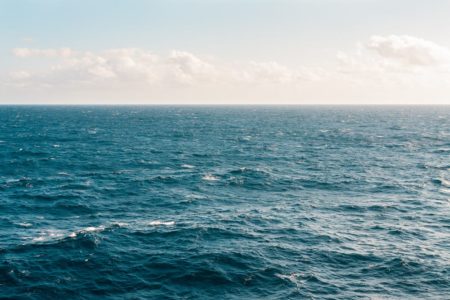There are 475 submarine cables crisscrossing the world’s oceans under thousands of fathoms of water. While out of sight, these data pathways, which carry 95 percent of the world’s internet traffic, should not be out of mind. They face increasing security threats that have global implications, according to a new report from the Atlantic Council, an international economic and political think tank.
“The security and resilience of undersea cables and the data and services that move across them are an often understudied and underappreciated element of modern Internet geopolitics,” the report said. “The construction of new submarine cables is a key part of the constantly changing physical topology of the internet worldwide.”
The report calls on the U.S. government to work with the private sector and with allies to protect the security and resilience of the world’s undersea cables, screening foreign cable owners for security risks and increasing the funding for the Cable Ship Security Program.
Undersea cables’ security is at risk from authoritarian governments, especially in Beijing, exerting control over companies that determine the internet’s physical layout to route global data more favorably, potentially for espionage. For example, the three Chinese-incorporated firms listed as owners of undersea cables — China Mobile, China Telecom and China Unicom—are all state-owned.
“Changes to traffic routing patterns generate profits for companies and can move new volumes of traffic through different countries’ borders. This can enable data interception and the development of technological dependence,” the report said.
Companies that manage undersea cables have begun to use network management systems to centralize control over components, which introduces new levels of operational security risk, according to the report.
“When these cable management tools are connected to the global internet, they expose undersea cables to new risks of hacking — both for monitoring cable traffic and disrupting it altogether,” the Atlantic Council said.
With the growth of cloud computing, the data flowing over the internet has increased in volume, the report said. Additionally, with the pandemic promoting remote work, the sensitivity of data has grown commensurately.
The report focuses on how the U.S. government can increase security and resiliency in undersea cables. It included recommendations for the White House, the FCC, the State Department, cable owners and the major internet tech companies to increase cooperation, share threat information and study new methods of better protecting the cables.
“As the White House increasingly focuses on cybersecurity threats to the nation and the global community, including from the Chinese and Russian governments, it must prioritize investing in the security and resilience of the physical infrastructure that underpins internet communication worldwide,” the Atlantic Council wrote. “Failing to do so will only leave these systems more vulnerable to espionage and to potential disruption that cuts off data flows and harms economic and national security.”
By J. Sharpe Smith, Inside Towers Technology Editor





Reader Interactions